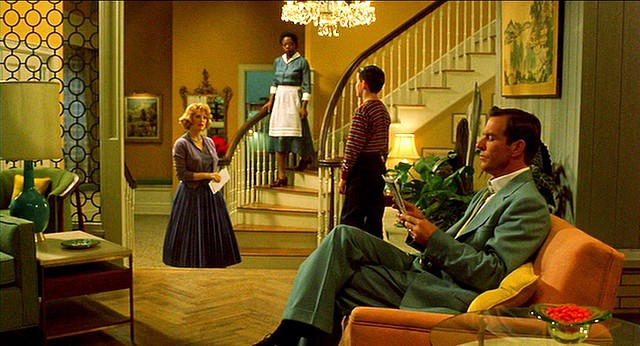Breadwinner Blues
Husband tells SAHM wife via the Guardian, “I want you to get a job because I want to feel loved”

This anonymous letter, ostensibly from a husband to his wife, is just as intense as the headline would lead you to expect.
A letter to … my wife, who won’t get a job while I work myself to death
With candor that seems born of desperation, the husband describes his situation. He’s worked full-time at a high-paying, high-pressure job throughout their marriage, while his wife — also a lawyer — never seemed interested in getting a job. Once they began having children, she was more than happy to stay home full-time. Now he’s exhausted, resentful, even spiteful: “it has become clear that you are OK with my working myself to death at a high-stress career that I increasingly hate, as long as you don’t have to return to the workforce.”
He feels used because, well, he is.
You keep busy volunteering, exercising and pursuing a variety of hobbies. You socialise with similarly situated women who also choose to remain outside the paid workforce. You all complain about various financial pressures, but never once consider, at least audibly, that you could alleviate the stress on both your budgets and your burnt-out husbands by earning some money yourselves.
Our family is grateful for all that we enjoy and we know that we’re far more fortunate than millions who work far harder than I ever have, or will. And I know all too well that work can be unpleasant. But I don’t want you to work so I can buy a Jaguar or a holiday home. I want you to work so I can get a different position and we can still maintain a similar standard of living.
I want you to get a job so I don’t wake up in the middle of the night worrying that my career is the only one between us and financial ruin. I want you to work so our marriage can feel more like a partnership and I can feel less like your financial beast of burden.
In other words, he’s got those Breadwinner Blues.
It’s hard not to sympathize. Fundamentally, this couple is mismatched: she’d be better off with someone who’d be thrilled to support a SAHM / homemaker, whereas he’d be better off with someone who, as he says, would feel more like a contributing partner. He seems to feel bait-and-switched since he met his wife in law school; I guess he assumed she wanted to put her degree to good use and was surprised when her aspirations turned out to be quite different. The takeaway is that maybe it’s a good idea to talk things through before committing to another human being for life. See also: this Daily Mail piece from six months ago about a husband and wife who have now each taken a turn being the breadwinner and the SAH parent to four small kids. Ignore the hilariously click-bait-y title; the content is more complex.
You can never fancy a man who becomes a house husband
The broader point of both pieces is that our 21st century Western-style capitalist winner-takes-all economies don’t serve us well, men or women. Very few women, after all, are actually enjoying the kind of leisured existence the Guardian author describes; most of us are also working too much and too hard, to the detriment of our health. And for what?
Much of the LW’s issue with shifting jobs revolves around fear for his “lifestyle.” It’s because he’s scared of a potential lifestyle downgrade that he won’t unilaterally quit or change jobs, even though he needs to. At one point he lists what he’s proud to have been able to achieve for his family: “a nice house in a safe, quiet neighborhood; annual holidays; happy, healthy children; money saved for their college years.” But good schools and safe neighborhoods shouldn’t be accessible only to the professional class. They should be available to nearly everyone in a democracy. They should be the hallmarks of any democracy worth living in.
We need to stop obsessing over the pluses and minuses of everyone’s individual choices and start thinking about what’s good for everyone. If we make schools better across the board, people won’t have to go crazy trying to afford one of the few, expensive houses in the few, expensive “good” school districts. If we make childcare more affordable for everyone, people who would prefer not to won’t have to sacrifice careers, social security, and earning potential so as to stay home with the kids — and, as a plus, won’t engender the kind of bitterness evident in this man’s cri de couer.
In this, the Guardian and the Daily Mail concur: moderation is key. Most of us aren’t cut out for the extremes. If society seems to demand of us something that feels so unnatural, the long-term solution is to push back not against our natures but against society itself.
Support The Billfold
The Billfold continues to exist thanks to support from our readers. Help us continue to do our work by making a monthly pledge on Patreon or a one-time-only contribution through PayPal.
Comments